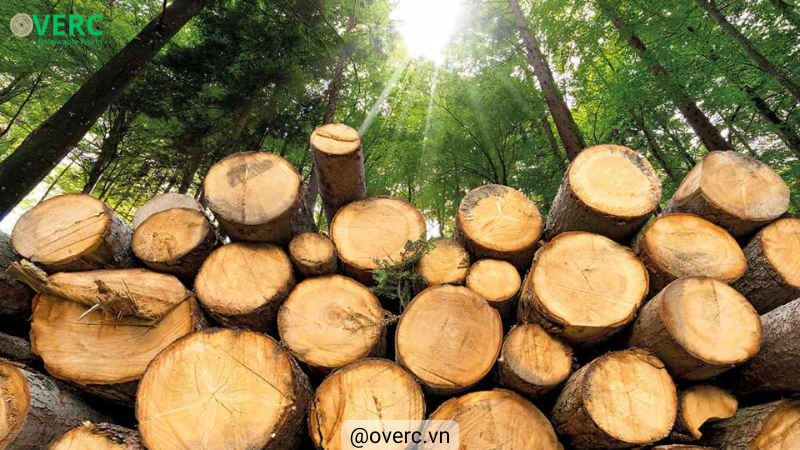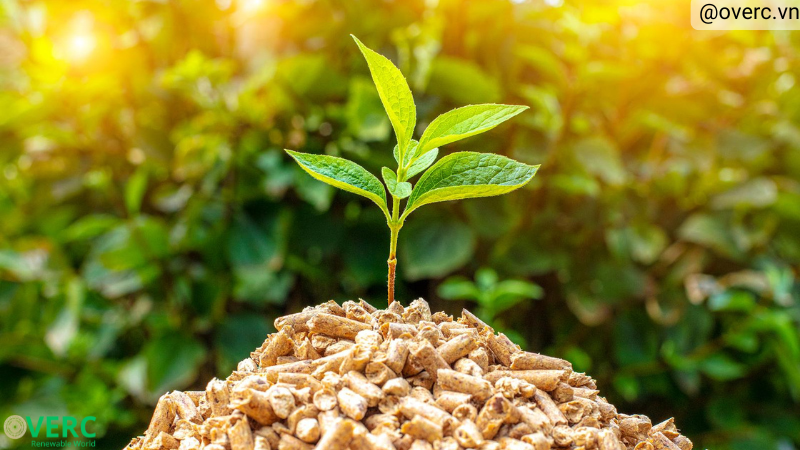
In today’s volatile global landscape, it is crucial to thoroughly analyze the effects of military conflicts on the biomass market. Biomass, which includes products like wood pellets, plays a significant role in providing a renewable energy source and contributing substantially to the collective effort to mitigate climate change. In this article, we will explore the key developments and specific data on the impact of global military conflicts on the global biomass market.
Global Biomass Market Before Conflicts
Before delving into the analysis, it is essential to understand the role and scale of the biomass market worldwide. Biomass, particularly products like wood pellets, plays a pivotal role in supplying renewable energy, contributing significantly to carbon emission reduction goals and the transition to a green economy. According to data from the International Renewable Energy Agency (IRENA), in 2020, biomass energy accounted for approximately 60% of total global renewable energy, with a production volume exceeding 61 exajoules (EJ).
However, the outbreak of military conflicts, especially the Russia-Ukraine war, has caused significant disruptions in the global biomass market. Russia and Ukraine are two major wood suppliers globally, accounting for around 10% of total global wood production. As the conflict erupted, wood supply from these two countries became severely constrained, leading to a global shortage of raw materials for wood pellet production.
Impact on Wood Pellet Production and Prices
The disruption of wood supply from Russia and Ukraine has directly impacted wood pellet production worldwide. According to data from the European Biomass Association (AEBIOM), wood pellet production in the European Union (EU) decreased by approximately 5% in 2022 compared to 2021 due to the lack of raw materials.
Furthermore, wood pellet prices have also surged significantly in this context. Data from the European Commission indicates that the average price of wood pellets in the EU market increased by approximately 70% in 2022 compared to 2021, reaching an average of 340 euros/tonne by the end of 2022.
This price increase has affected not only wood pellet producers and suppliers but also end-consumers, leading to a substantial rise in the cost of using this biomass fuel.
Impacts on Biomass Import-Export Market

Apart from the impact on wood pellet production and prices, the Russia-Ukraine war has also significantly affected the global biomass import-export market. Russia is one of the world’s largest wood exporters, accounting for approximately 20% of total global wood exports. As the conflict erupted, sanctions and transport restrictions have severely limited the amount of wood exported from Russia.
This has forced wood and biomass importing countries to seek alternative supply sources, such as Canada, the US, or some African countries. However, switching supply sources is not always straightforward due to factors like geographical distance, transportation costs, and trade barriers.
In addition, some countries, such as those in Europe, have increased imports of biomass from sources like North America and some African countries to compensate for the supply shortage from Russia. However, this has also led to increased transportation costs and put pressure on the global biomass market.
Prospects and Recommendations for the Biomass Market
In the current context, there are still many challenges to restoring and stabilizing the global biomass market. The prolonged Russia-Ukraine conflict, along with other geopolitical risks worldwide, will continue to pressure the supply and prices of wood pellets and other biomass products.
However, given biomass’s crucial role in the transition to a green economy, governments and stakeholders must work to maintain and promote the stable development of this market. Some recommendations may include:
Diversifying wood and biomass supply sources to reduce reliance on supplies affected by conflicts.
Increasing investment and developing technologies for wood pellet production and other biomass products to improve efficiency and product quality.
Establishing robust and sustainable supply chains with close coordination among producers, suppliers, and importers.
Formulating policies and providing financial support to promote biomass energy use, contributing to the transition to a green economy.
With appropriate efforts and solutions, the global biomass market, including wood pellets, can overcome current challenges and continue to develop sustainably in the future.
Source:
Biomass Magazine
Overc Team synthesize, analyze and write articles.
***
OVERC was established in Vietnam, which has 17 FTA (Free Trade Agreement).
Vietnam is one of the countries with the most FTAs in the world.
Our main activities are manufacturing and distributing Wood Pellets and Wood Waste. Our wood pellets products, which are made from Accacia veneer residual 100% or wood waste (logs, sawdust, wood chips, wood shavings,…), have been exported to many countries around the world such as Japan, Korea, EU, etc.
OVERC Co.,Ltd would like to wish you all the best at this time.
For more information on our products, please visit our website at OVERC.VN – Renewable World.